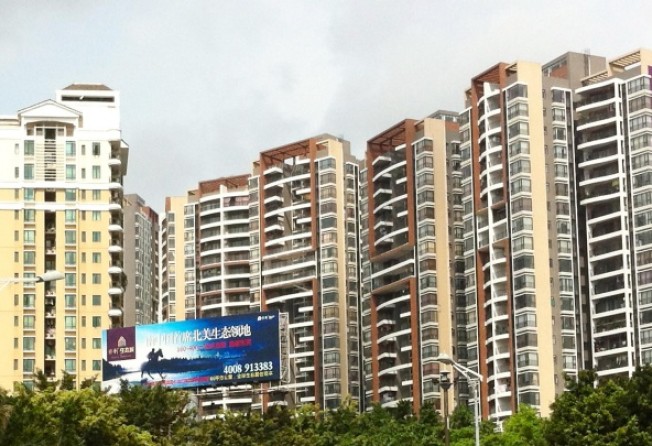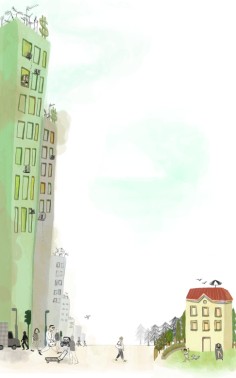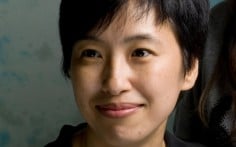
Hongkongers looking for a better lifestyle flock to Shenzhen
Hongkongers are looking for second homes across the border for affordable luxury

As friction continues between sections of Hong Kong's indigenous population - if there is such a thing - and the mainlanders they see as taking over their patch, there's another, less well-known migratory pattern taking place. It's in the opposite direction in search of what you might call "perfect otherness".

Even former chief executive Donald Tsang Yam-kuen had his eye on a cross-border pad with the offer of a luxury apartment on the mainland. His plans fell apart in a public way when the Independent Commission Against Corruption launched an investigation in February last year into his ties to tycoons and possible alleged favours - including a bargain rate for a luxury penthouse in Shenzhen.
But it's not just a growing phenomenon among Hong Kong's wealthy middle and upper class. The city's hard-working class is also getting in on the act.
So says Dr Maggy Lee, an associate professor with Hong Kong University's sociology department, who is the driving force behind a study, funded by the Hong Kong Research Grants Council, into second homes. The study, Lifestyle Migration in East Asia, has uncovered interesting attitudes and motivations.

The growth of cross-border movement and second-home ownership in China since the early 1990s partly reflects these broader trends. But it also touches on specific political and economic issues, such as land reforms and the marketing strategies of property developers. What is different about the Hong Kong stories Lee has uncovered is how widespread the phenomenon has been.
"Middle-class individuals and families in our study are very much at ease moving between Hong Kong and China and other overseas destinations," Lee said. "They have the resources to choose where and when to move, and the mainland is one of various options to pursue a good life."
Lee also found that working-class people - including those living in public housing, those who use their life savings or whose children chip in to purchase a property on the mainland - are relatively immobile, have fewer experiences of travel, and their everyday routines are more restricted to the local neighbourhood in Hong Kong.
But crossing the border to the mainland for weekend trips enabled them to reinvent themselves, however temporarily.
It could be as a home owner, enjoying private space or a garden, as a consumer enjoying VIP treatment in restaurants for a fraction of the price they pay in Hong Kong, or to realise the "good family life". For instance, being able to cook for children and grandchildren in a fully equipped kitchen is an attraction, Lee said.
"I think, all in all, these personal stories and their hopes and dreams tell us something important about the social changes and constraints of everyday lives in Hong Kong."
In Europe since the 1980s, middle-class Britons seeking a second home often bought into France's "rural idyll", or chose the "escape to the sun" concept in Spain. They were elite and privileged people who could afford to have a holiday home in these places.
What is unique to Hong Kong today, though, is that property developers in the city are selling mainland properties to many ordinary working-class people. The attraction of having a second home in nearby Shenzhen for a fraction of what it would cost here is too good to pass up.
"The working-class respondents we spoke to from Hong Kong worked six days a week for incredibly long hours," Lee said. "They so looked forward to having even just one day of the week at their place in China.
"That's how they fulfil their dreams of a good life with their families sometimes - to get the chance to escape from their daily routines."
Since the 1990s, all of Hong Kong's major property developers have been promoting large-scale residential properties aimed at the city's residents and increasingly the mainland's emerging middle class.

Generally, Hong Kong developers organise day trips for prospective buyers to visit their main developments and show them around. Most of these developments all started around the same time in the early 1990s. These tours can be a strange cultural experience too.
"I visited some of these gated communities. Some were huge with their own shops, hospitals and schools, and club facilities. One of the largest gated communities had 50,000 residential units," Lee said. "These communities are quite surreal. They have a strange imagined modernity."
Many buyers have been attracted by the "five-star home" lifestyle in an exclusive environment, complete with residents' clubhouse, golf courses, supermarkets and other luxury touches such as landscaped gardens, lakes and palm trees.
One developer's glossy brochure described their luxury compound as "a most cherished 5km of white sandy beach and an excellent natural landscape. It makes the holiday life become normal for people".
Lee said: "One luxury compound had speakers planted within palm trees playing recordings of birds chirping, or western-style elevator music, to give a manufactured or staged authenticity. But you must remember these complexes are representing the high-end of this whole phenomenon and aimed at Hong Kong's wealthy middle class."
Lifestyle migration is about those who move from developed to less-developed economies such as from Hong Kong to the mainland. Lee's study showed that people used their second property almost as a holiday home, visiting two or three times a month. Most of those interviewed were retired, and did it for leisure.
Some were first-generation middle class in Hong Kong who had taken advantage of the economic changes in the 1970s. They had done well financially but came from humble origins. They wanted a comfortable lifestyle in an orderly environment.
It's also part of the story of post-reform China. In the 1990s, when land reform first started, the housing market became privatised and a vast amount of urban land was freed up for local and foreign property developers to build these gated compounds.
However, increasingly, land acquisition on the mainland has become controversial, with local villagers and farmers protesting when their land is acquired.
For Lee, the whole phenomenon is fascinating because it involves the spectrum of Hong Kong society. For many working-class people who have second homes on the mainland, it wasn't about luxury.
"It's as simple as being able to do your own gardening or growing your own vegetables. It makes a big difference," Lee said. "This way of thinking is happening across the board, not just with those middle and upper classes in Hong Kong society."
Lee also felt the majority of people were not doing it because they wanted to escape Hong Kong either.
"Yes they felt liberated to be elsewhere, but I did not get the sense they were fed up or miserable. They just wanted a change, and this is the key part," she said.
"Why do any of us travel or go on holiday? It's because we want a change. We found that people are moving back and forth from Hong Kong and China continually," said Lee.